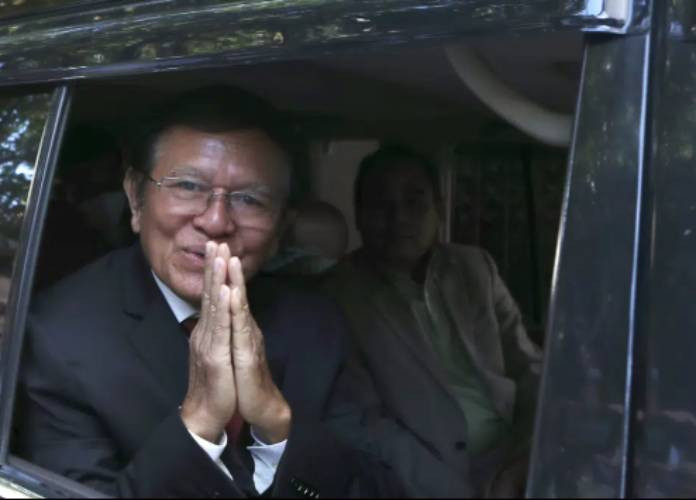
Former President of Cambodia National Rescue Party, Kem Sokha, greets from his car in front of his house in Phnom Penh, Cambodia, Friday, March 3, 2023. Cambodia's beleaguered pro-democracy forces face another day of reckoning Friday, as the country's most prominent opposition politician not in exile is scheduled to hear the verdict in his trial for treason.[AP]
A court in Cambodia on Friday found Kem Sokha, leader of the dissolved Cambodia National Rescue Party, guilty of treason and sentenced him to 27 years imprisonment to be served under house arrest.